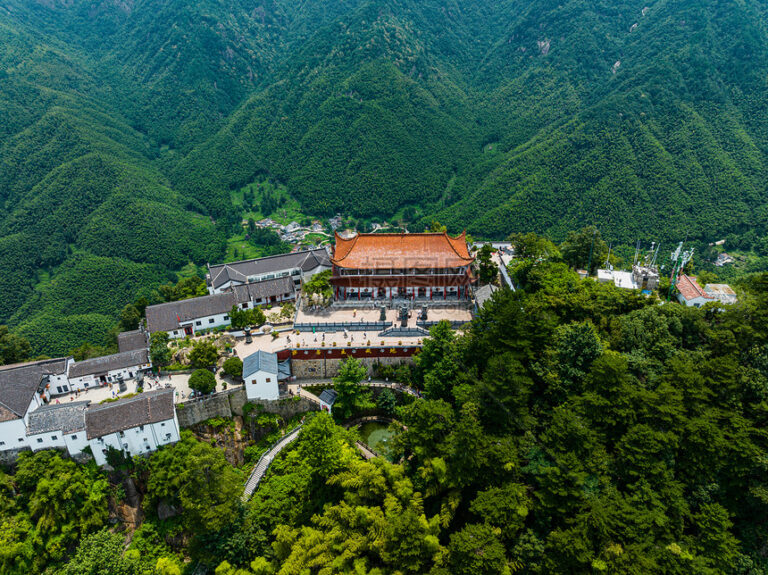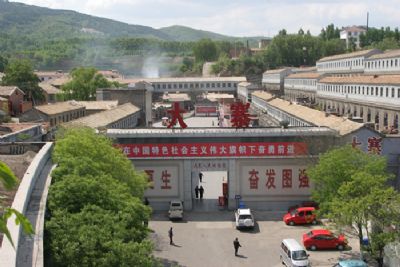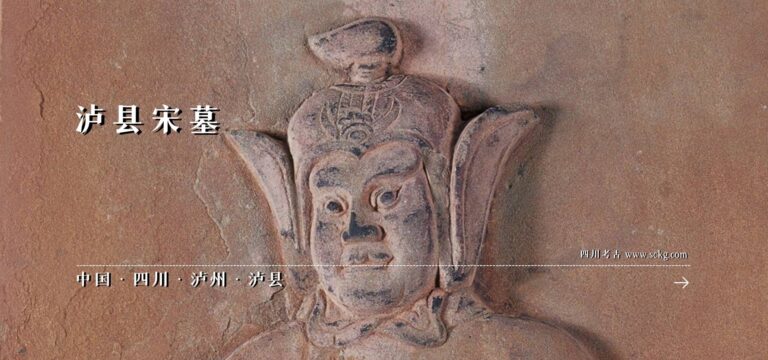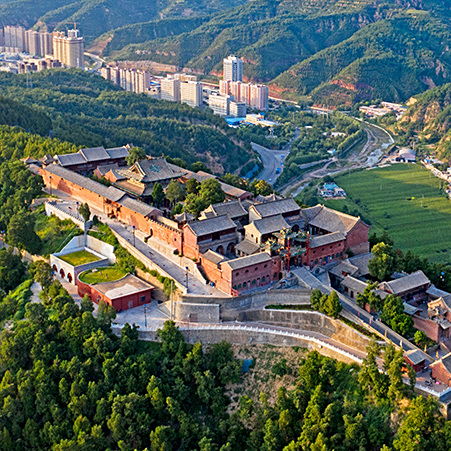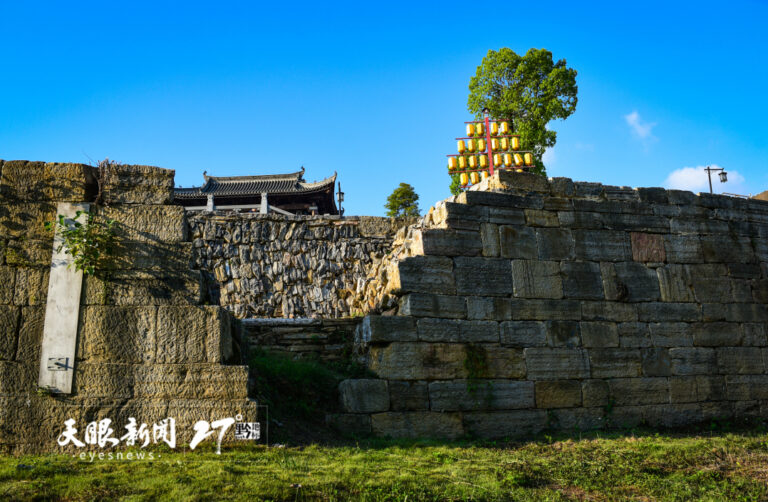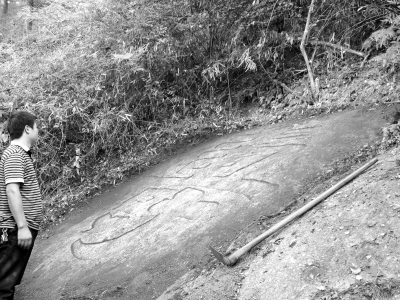Discovering Tianshui Yuquanguan: A Spiritual Journey Through Nature
An Essential Guide to Visiting Tianshui Yuquanguan
In This Guide
- An Essential Guide to Visiting Tianshui Yuquanguan
- The Rich History of Tianshui Yuquanguan
- Main Highlights: What to See at Tianshui Yuquanguan
- Planning Your Visit: A Practical Guide
- Tickets, Hours, and Booking
- How to Get There
- Local Cuisine and Accommodation
- Frequently Asked Questions
- Final Thoughts on Your Trip
Nestled at the foot of the Tianshui mountains in Gansu Province, the Yuquanguan, or Jade Spring Temple, stands as a testament to China’s rich spiritual and architectural heritage. Known for its serene environment and historical significance, this Taoist complex is steeped in myth and history, drawing visitors who seek both tranquility and a glimpse into the past.
The temple’s origins trace back to the Tang Dynasty, originally named “Beishan Guan,” and it has evolved through various dynasties, adopting its current name during the Song Dynasty. With a layout that reflects traditional Taoist principles, Yuquanguan features a series of majestic halls, pavilions, and scenic spots spread over a sprawling area of over 90,000 square meters. Among its notable structures are the grand Jade Emperor Hall and the Three Pure Ones Hall, each embodying the distinct architectural styles of the Ming and Qing dynasties.
As you wander through the temple grounds, you’ll encounter not only the stunning architectural elements but also the enchanting natural landscape that surrounds it. Visitors can explore the lush greenery, ancient trees, and serene springs that give the temple its name. The annual temple fair, held on the ninth day of the lunar calendar, transforms the site into a vibrant hub of activity, showcasing local culture and traditions.
Whether you’re a history enthusiast, a spiritual seeker, or simply in search of a peaceful retreat, Yuquanguan offers an unforgettable experience that captures the essence of China’s profound cultural tapestry. Discover the beauty and serenity of this ancient site, and allow yourself to be transported back in time amidst its tranquil paths and sacred spaces.
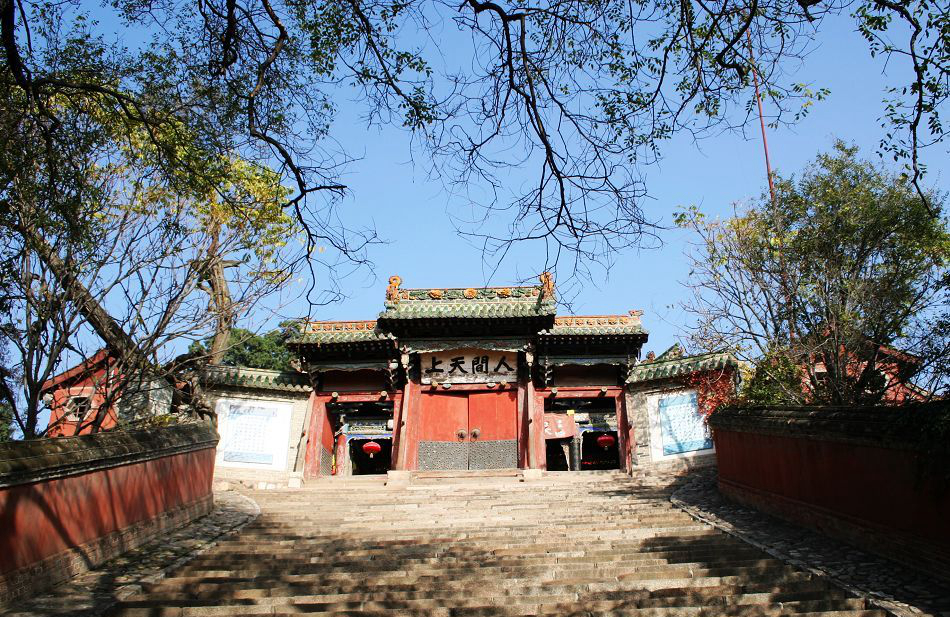
Tianshui Yuquanguan.
The Rich History of Tianshui Yuquanguan
Tianshui Yuquanguan, also known as the Jade Spring Temple, boasts a rich and storied history that dates back to the Tang Dynasty (618-907 AD). Initially founded as a Daoist temple under the name Beishan Guan, it underwent various transformations and renovations throughout the centuries, reflecting the evolving architectural and cultural landscape of the region.
In the Song Dynasty (960-1279), the temple was renamed Tianqing Guan and later adopted its current name, Yuquanguan, during the late Song period. This renaming coincided with a period of significant destruction and subsequent rebuilding, which saw the temple flourish in the Ming (1368-1644) and Qing (1644-1912) dynasties. At its peak, the complex housed over 90 structures, showcasing an impressive array of architectural styles and religious significance.
The temple is nestled at the foot of Tianjing Mountain in Tianshui City’s Qinzhou District, strategically positioned to overlook the ancient city. Yuquanguan is renowned for its beautiful gardens, serene spring waters, and the stunning architecture of its main halls, including the majestic Jade Emperor Hall and the Sanqing Hall. These buildings are aligned along a central axis, characteristic of traditional Daoist design principles, which emphasize harmony with nature.
Among the site’s notable features is the Yuquan Cave, a revered spot believed to be the final resting place of three legendary Daoist immortals, enhancing the temple’s status as a pilgrimage destination for followers of Daoism. The site is also home to numerous inscriptions and steles from various dynasties, including rare artifacts from the Yuan Dynasty, such as the Four-Sided Daoist Stele, which is considered a national treasure.
Every year, the temple hosts a vibrant fair on the ninth day of the lunar new year, attracting locals and tourists alike who come to partake in the festivities, which include traditional rituals, food stalls, and cultural performances. This annual event underscores Yuquanguan’s enduring significance as a spiritual and cultural hub.
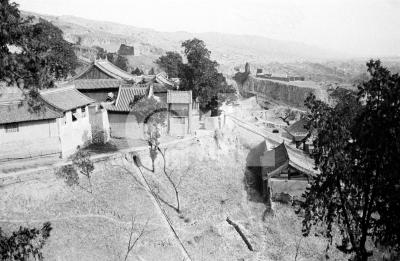
Tianshui Yuquanguan.
Today, Tianshui Yuquanguan stands as a testament to the rich historical tapestry of the region, embodying the fusion of natural beauty, religious devotion, and architectural grandeur. It remains a must-visit site for anyone exploring the historical depths of Tianshui and the broader Gansu province, offering a unique glimpse into China’s profound Daoist heritage.
Main Highlights: What to See at Tianshui Yuquanguan
Tianshui Yuquanguan, an ancient Taoist temple complex nestled at the foot of Tianshan Mountain in Gansu Province, is a treasure trove of cultural and historical significance. Known for its serene environment and remarkable architecture, it attracts visitors keen on exploring both the spiritual and the scenic.
As you approach Yuquanguan, you’ll be greeted by a grand archway marking the entrance. This impressive structure leads to a series of temples and pavilions that exhibit a harmonious blend of Ming and Qing architectural styles. The complex is laid out along a central axis, featuring seven primary structures, including the majestic Yuhuang Hall and Sanqing Hall, which are dedicated to revered Taoist deities.
Among the must-see sites within the complex is the Yaosheng Palace, a shrine believed to promote health and well-being, and the Five Wealth Gods Hall, where visitors pray for prosperity. Nearby, the ancient medicinal herbs and tranquil surroundings make this a perfect spot for reflection and relaxation.
One of the highlights of Yuquanguan is the Yuquan Cave, a site steeped in legend as the final resting place of three immortal Taoist figures. This cave is not only a spiritual site but also offers a breathtaking view of the surrounding lush landscape. The temple complex is also home to over 60 ancient stone tablets, including rare inscriptions from the Yuan Dynasty, making it a fascinating destination for history enthusiasts.
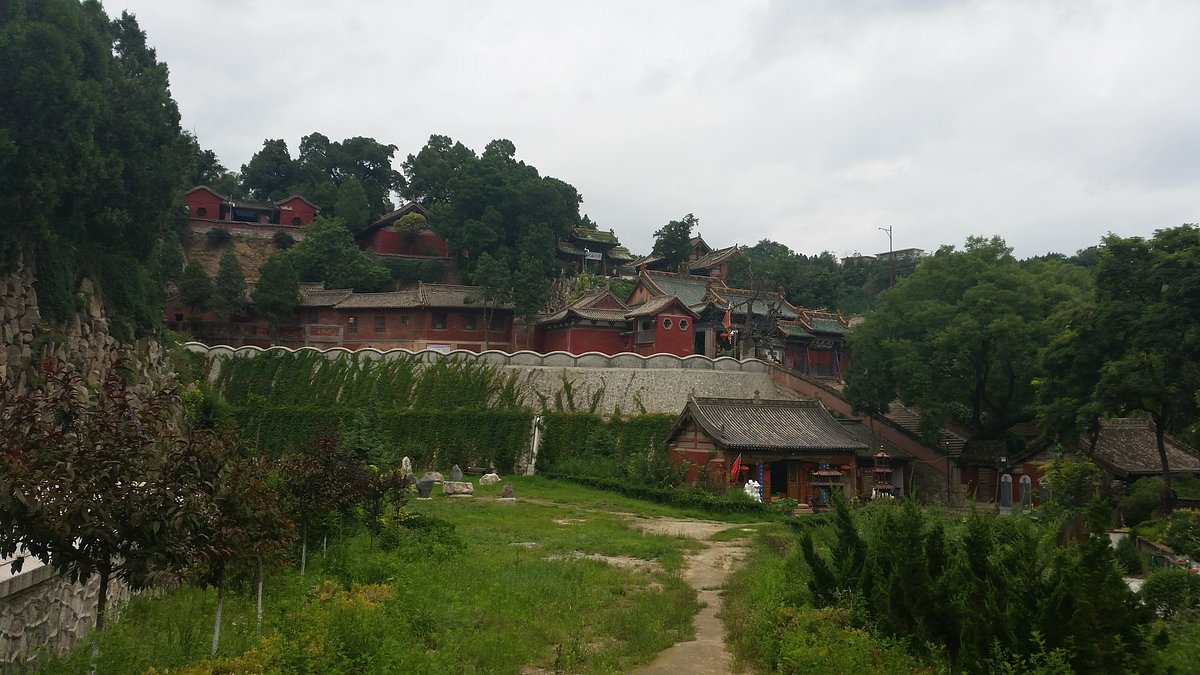
Tianshui Yuquanguan.
The annual temple fair, held on the ninth day of the lunar new year, transforms Yuquanguan into a vibrant hub of local culture and festivities. During this time, the atmosphere is electric with traditional performances, food stalls, and a palpable sense of community spirit.
Accessible from Tianshui city center with a short walk or by public transport, Yuquanguan offers a perfect blend of history, spirituality, and natural beauty. Whether you are looking to explore ancient architecture, seek tranquility, or engage in local traditions, this historic site promises an enriching experience for all visitors.
Planning Your Visit: A Practical Guide
Practical Guide to Tianshui Yuquanguan (玉泉观)
Visiting Tianshui Yuquanguan, a prominent Taoist temple complex in Gansu province, is an enriching experience that combines spirituality, history, and stunning natural beauty. Here’s everything you need to know to make the most of your visit.
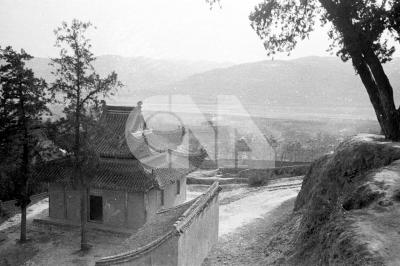
Tianshui Yuquanguan.
Getting There
Location: Yuquanguan is situated at the foot of Tianjing Mountain, just north of Tianshui City in the Qinzhou District.
Transportation:
– By Air: The nearest airport is Tianshui Maijishan Airport, which has connections from major Chinese cities. From the airport, you can take a taxi or use a ride-hailing app to reach the temple.
– By Train: Tianshui South Railway Station is well connected to various cities via high-speed trains. Once you arrive, you can take Bus No. 3, which directly goes to Yuquanguan.
– By Car: If you prefer driving, you can rent a car or take a taxi from the city center, which is about a 15-minute drive away.
Entrance Fees and Hours
- Admission Fee: The entrance fee for Yuquanguan is approximately ¥20 per person.
- Opening Hours: The temple is open from 8:00 AM to 6:00 PM, allowing ample time to explore the site throughout the day.
What to See
Yuquanguan boasts a rich architectural heritage with over 60 buildings, primarily from the Ming and Qing dynasties. Key highlights include:
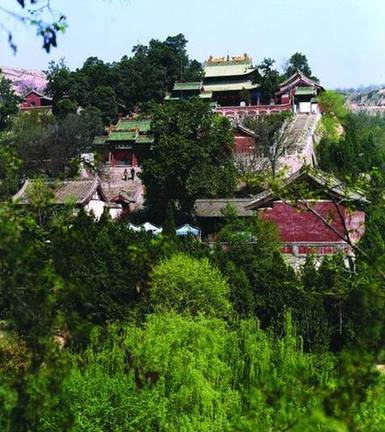
Tianshui Yuquanguan.
- Yuhuang Hall (玉皇殿): The main hall dedicated to the Jade Emperor, showcasing intricate carvings and vibrant decorations.
- Sanqing Hall (三清殿): Another significant hall that honors the Three Pure Ones, central figures in Taoist belief.
- The Stone Lions: Guarding the entrance, these majestic stone lions set the tone for the spiritual experience that awaits.
- Scenic Views: The temple is set against a backdrop of lush mountains and serene landscapes, providing picturesque views and tranquil walking paths.
Activities
- Hiking: The area around Yuquanguan offers several trails for hiking enthusiasts. Ascend the nearby hills for breathtaking views of Tianshui City below.
- Photography: Capture stunning shots of the ancient architecture and the surrounding natural scenery. Early morning or late afternoon provides the best lighting for photos.
- Cultural Experience: Engage with local worshippers during festivals, particularly during the annual temple fair on the ninth day of the lunar new year, which features vibrant celebrations.
Local Tips
- Best Time to Visit: Spring (April to June) and autumn (September to November) are ideal for visiting due to mild weather and beautiful scenery.
- Dress Appropriately: As a religious site, it’s respectful to dress modestly. Comfortable footwear is recommended for walking and hiking.
- Stay Hydrated: Bring water, especially if you plan on hiking in the area, as some trails can be steep and strenuous.
- Accommodation: Consider staying in Tianshui City, where you’ll find a range of accommodations from budget hotels to more luxurious options, ensuring easy access to the temple and other attractions.
Nearby Attractions
After exploring Yuquanguan, take the time to visit nearby sites:
– Fuxi Temple (伏羲庙): A significant historical site dedicated to Fuxi, an important figure in Chinese mythology.
– Maijishan Grottoes (麦积山石窟): A UNESCO World Heritage site featuring intricate Buddhist carvings and statues, located a short drive from Tianshui.
– Tianshui Ancient City (天水古城): Wander through this historical area, where you can experience traditional architecture and local cuisine.
By following this guide, you’ll have a fulfilling visit to Tianshui Yuquanguan, immersing yourself in its rich cultural and spiritual heritage while enjoying the natural beauty of Gansu province.
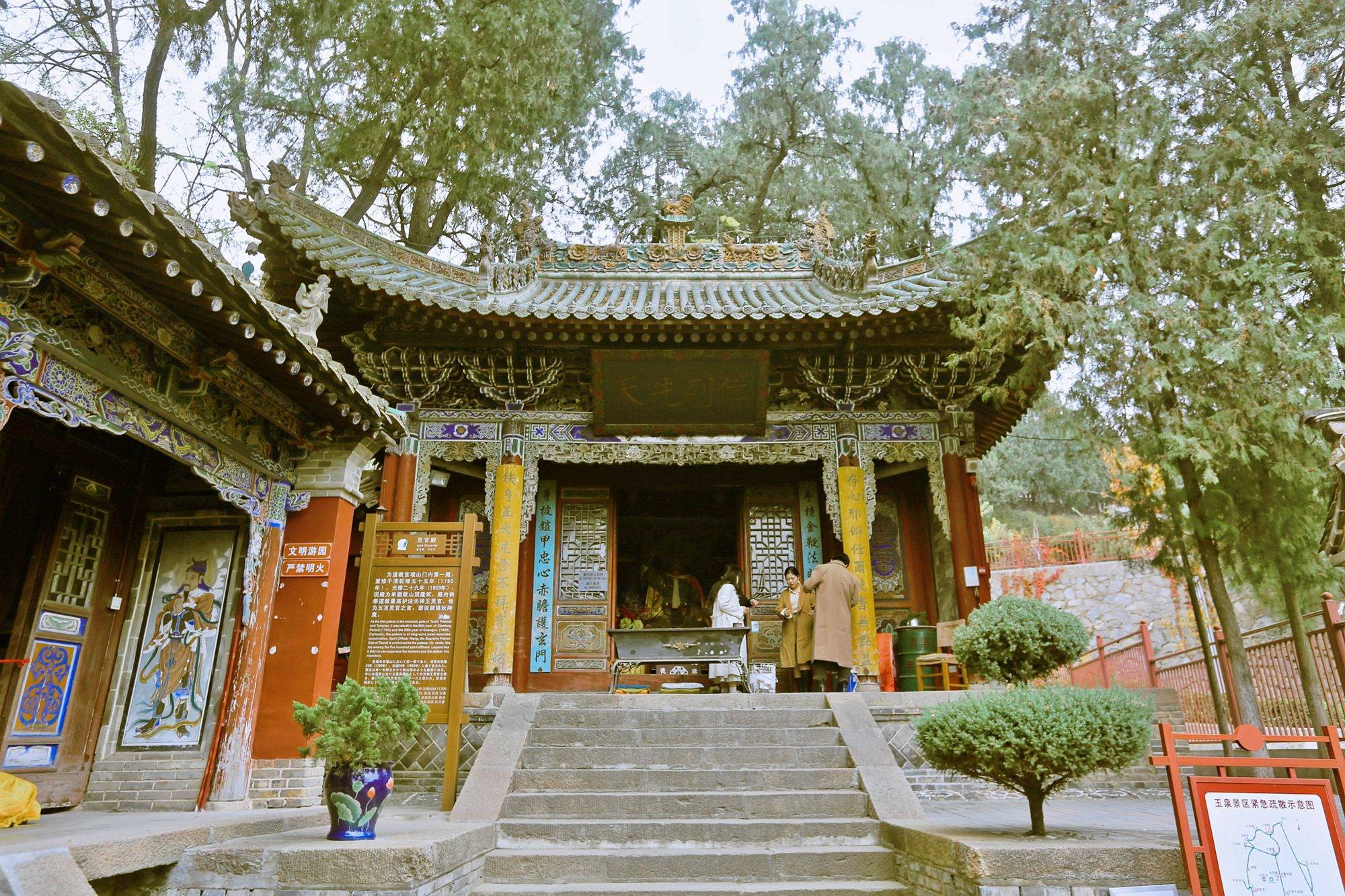
Tianshui Yuquanguan.
Tickets, Hours, and Booking
When planning your visit to Tianshui Yuquanguan (玉泉观), it’s essential to be aware of the ticketing details to ensure a smooth experience.
The entrance fee for the temple is 20 yuan per person, which grants access to the serene grounds and the stunning architecture that embodies traditional Daoist design. The site covers an expansive area of over 90,000 square meters, making it a worthwhile exploration for history enthusiasts and nature lovers alike.
Yuquanguan is open to visitors daily from 8:00 AM to 6:00 PM, providing ample time to enjoy its cultural and historical significance. To reach the temple, it is conveniently located within walking distance from the center of Tianshui, making it accessible via public transportation. Buses frequently run to the area, and taxis are also an option for those preferring a direct route.
For a more immersive experience, consider visiting during the annual temple fair on the ninth day of the lunar calendar, when the site is adorned with vibrant decorations and local festivities. This event showcases the rich cultural heritage of the region and offers a unique glimpse into local traditions.
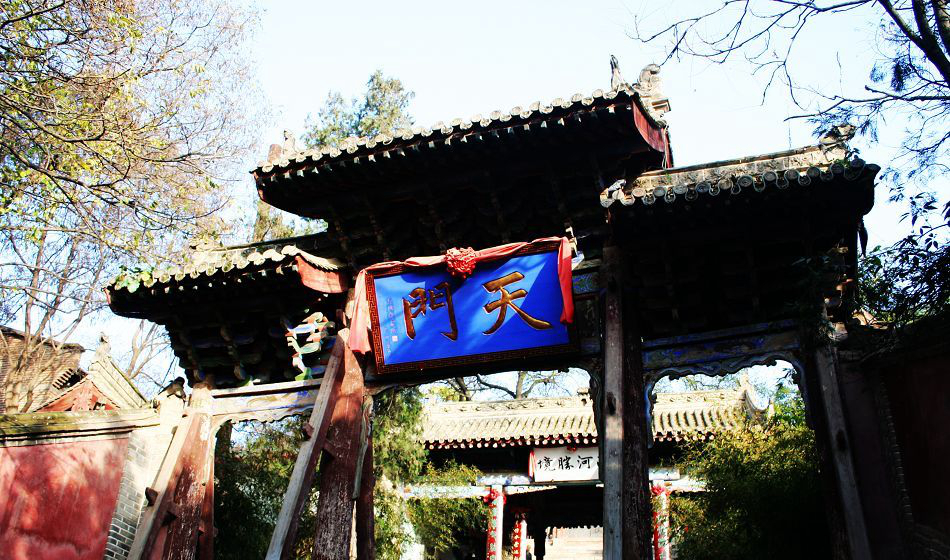
Tianshui Yuquanguan.
Ensure you carry some cash for the entrance fee, and be prepared for varied weather conditions, as the area can experience significant temperature fluctuations. Enjoy your visit to this historical gem in Tianshui!
How to Get There
Getting to Tianshui Yuquanguan (玉泉观) offers a variety of transportation options for travelers looking to explore this ancient Taoist temple complex nestled in the scenic landscapes of Tianshui, Gansu Province.
By Air
The nearest major airport is Tianshui Maijishan Airport (天水麦积山机场), located approximately 30 kilometers from the city center. The airport services several domestic flights from major cities such as Beijing, Shanghai, and Xi’an. Upon arrival, travelers can take a taxi or arrange a shuttle service to reach the city center or directly to Yuquanguan.
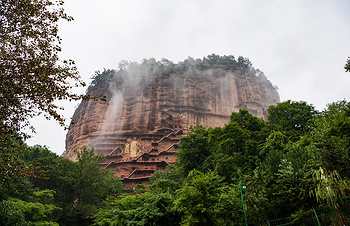
Tianshui Yuquanguan.
By Train
Tianshui is well-connected via the railway network, with Tianshui Railway Station serving as a key hub. High-speed trains from cities like Xi’an and Lanzhou make it easy to reach Tianshui quickly. From the train station, visitors can take a local taxi or use public transportation to get to Yuquanguan.
By Bus
Public buses operate frequently within Tianshui, providing a cost-effective means of transportation. Bus number 3 is a convenient option for reaching Yuquanguan directly from the city center. Buses are generally reliable and can help travelers navigate the local area with ease.
By Taxi or Ride-Hailing Apps
Taxis are widely available throughout Tianshui, and using ride-hailing apps like Didi Chuxing can be a convenient alternative. A taxi ride from the city center to Yuquanguan typically takes about 15-20 minutes, depending on traffic conditions.
Walking from Nearby Attractions
For those who enjoy a leisurely stroll, Yuquanguan is within walking distance from several other popular attractions in Tianshui, such as the Fuxi Temple (伏羲庙). The scenic paths leading to the temple enhance the overall experience, making it a rewarding trek for visitors.
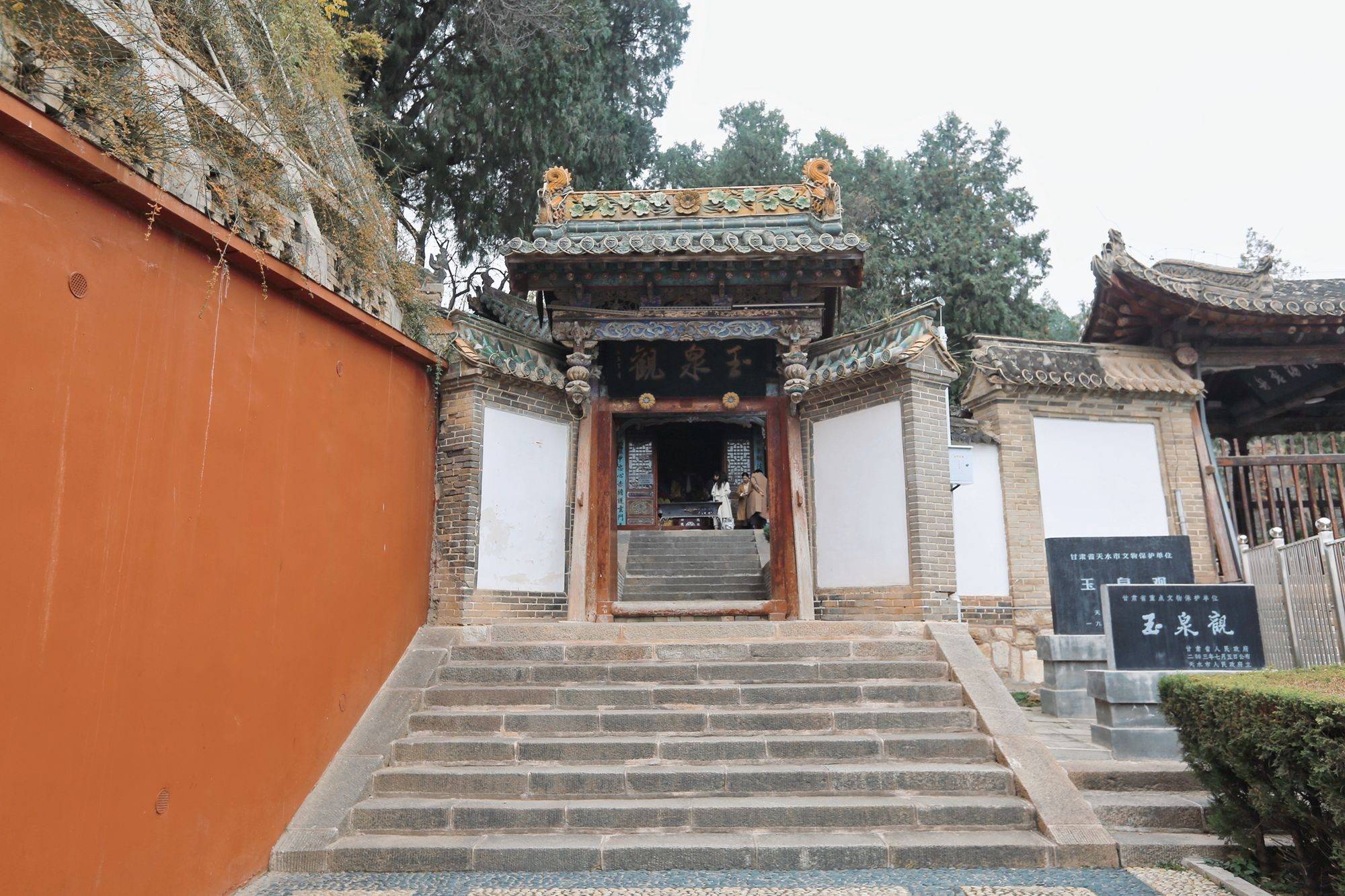
Tianshui Yuquanguan.
Local Tips
- Best Time to Visit: The ideal seasons to explore Tianshui and Yuquanguan are spring (April to June) and autumn (September to November) when the weather is mild and pleasant.
- Language: While major transportation services may have English-speaking staff, it’s advisable to have your destination written in Chinese to facilitate communication with local drivers.
- Planning Ahead: Consider checking train and bus schedules in advance, especially during holidays when services can be busier than usual.
Whether you’re arriving by air, train, or bus, Tianshui Yuquanguan is easily accessible, allowing you to immerse yourself in the rich culture and history that this beautiful site has to offer.
Local Cuisine and Accommodation
When planning your visit to Tianshui Yuquanguan, delighting in local cuisine and comfortable accommodations can greatly enhance your experience. Here’s a guide to some of the best dining spots and places to stay in Tianshui.
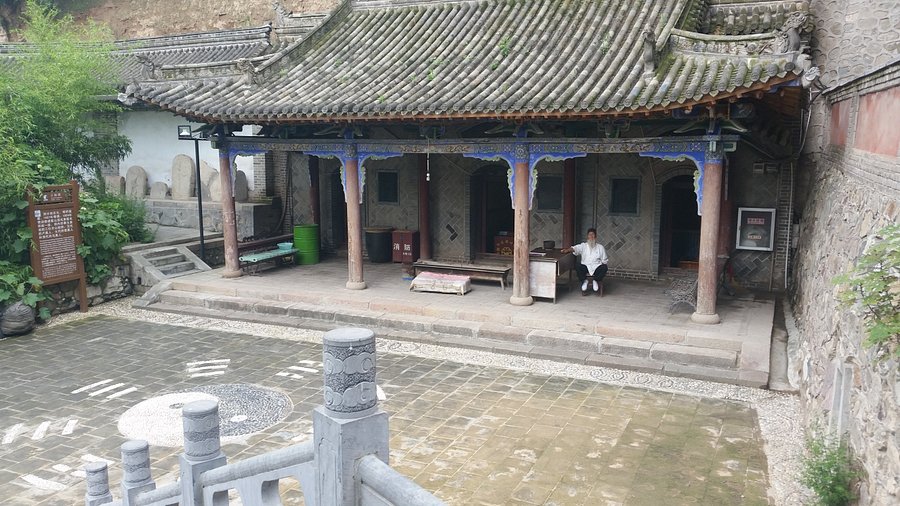
Tianshui Yuquanguan.
Culinary Delights
Tianshui is celebrated for its rich and diverse culinary landscape, with several local dishes that you simply must try:
-
Tianshui Guagua (天水呱呱): This traditional snack made from buckwheat flour is a local favorite. Served with spicy sesame sauce and chili oil, Guagua offers a delightful blend of flavors and textures that is both savory and refreshing.
-
Jiangshui Noodles (浆水面): Known for its sour and spicy taste, this dish features noodles served in a tangy broth, making it an excellent choice for those seeking a zesty meal.
-
Qin’an Stomach Soup (秦安肚丝汤): This nourishing soup, often enjoyed for its comforting qualities, is made with tender strips of stomach and aromatic herbs, providing both flavor and health benefits.
-
Spicy Hot Pot (麻辣烫): Tianshui is home to several hot pot restaurants, such as Haiying Spicy Hot Pot and Yuan Nu Spicy Hot Pot, where you can enjoy an assortment of fresh ingredients cooked in a rich, spicy broth.
-
Yangrou Chuan (羊肉串): Grilled lamb skewers seasoned with cumin and chili powder are a must-try for meat lovers. You can find these at various street stalls throughout the city.
Accommodation Options
Whether you’re looking for luxury or budget-friendly options, Tianshui has a variety of accommodations to suit your needs:
-
Luxury Stay: The Tianshui Jiafu Hotel is a top-notch establishment located near the city center, offering modern amenities and exquisite dining options. Another excellent choice is the Mingshan Pearl Hotel, which provides stunning views of the surrounding landscape.
-
Mid-Range Hotels: For a comfortable yet affordable stay, consider the Mercure Tianshui Wanda Plaza Hotel. This hotel boasts contemporary decor and is conveniently located near local attractions. Another good option is the Tianshui Kaibin Hotel, known for its warm hospitality and convenient access to public transport.
-
Budget-Friendly: If you’re traveling on a budget, the Kunyishi Time Hotel provides clean and comfortable rooms at reasonable prices. It’s also strategically located near public transport, making it easy to explore the city. For a more home-like experience, check out Xinghuo Homestay, which offers cozy accommodations at competitive rates.
Tips for Your Visit
-
Dining Hours: Most local eateries serve lunch from around 11 AM to 2 PM and dinner from 5 PM to 9 PM. Be sure to arrive early, especially for popular spots, as they can fill up quickly.
-
Cultural Etiquette: Tipping is not customary in China, but showing appreciation for good service with a smile is always appreciated.
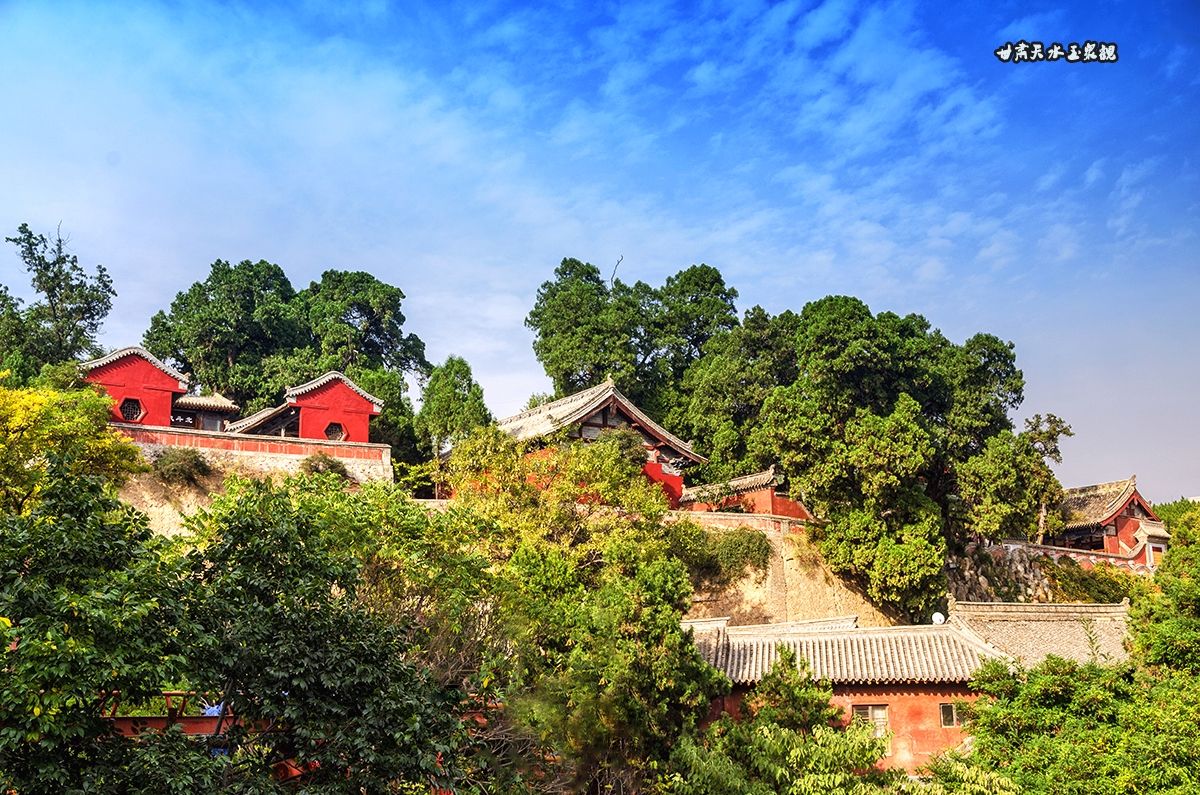
Tianshui Yuquanguan.
Enjoy your culinary adventures and restful nights in Tianshui as you explore the historical wonders of Yuquanguan!
Frequently Asked Questions
Frequently Asked Questions about Tianshui Yuquanguan (玉泉观)
-
What is Tianshui Yuquanguan?
Tianshui Yuquanguan, also known as the Yuquan Temple, is a historic Taoist temple located at the foot of Tianjing Mountain in Tianshui, Gansu Province, China. It is renowned for its impressive architecture and serene surroundings, making it a popular destination for both tourists and locals. -
How do I get to Yuquanguan?
The temple is conveniently located approximately 30 minutes on foot from downtown Tianshui. You can take public bus number 3 to reach the area, or opt for a taxi for a more direct route. -
What are the opening hours and entrance fees?
Yuquanguan is open daily from 8:00 AM to 6:00 PM. The entrance fee is 20 Chinese Yuan (CNY) per person, which grants you access to the temple and its various attractions. -
What can I see inside the temple?
Inside Yuquanguan, visitors can explore a variety of structures, including the majestic Yu Huang Hall, the Sanqing Hall, and several smaller shrines. Notable features include the Yuquan Fairy Cave, ancient trees, and numerous stone inscriptions dating back to the Ming and Qing dynasties. -
Is there a best time to visit Yuquanguan?
The ideal time to visit is during spring and autumn when the weather is mild and the natural scenery is particularly beautiful. Summer can be quite warm, while winter temperatures can drop significantly. -
Are there any special events or festivals held at Yuquanguan?
Yes, the temple hosts an annual temple fair every year on the 9th day of the first lunar month, known as “Chao Guan.” During this time, the temple is filled with festivities, including traditional performances, food stalls, and various cultural activities. -
Can I take photographs inside the temple?
Photography is generally allowed in most areas of Yuquanguan, but be mindful of any signs indicating restrictions, especially in areas where worship is taking place. Always respect the site’s spiritual significance and the privacy of other visitors. -
Are there facilities available for visitors?
Yes, Yuquanguan has basic visitor facilities, including restrooms and a small parking area. There is also a visitor center near the entrance where you can find maps and information about the temple and its history.
Final Thoughts on Your Trip
Visiting Tianshui Yuquanguan is more than just a trip to a historical site; it is a journey through time that connects you deeply with the rich tapestry of Chinese culture and spirituality. Nestled at the foothills of the tranquil Tianjing Mountain, this ancient Taoist temple complex offers a serene escape from the bustle of modern life. As you wander through its majestic halls, adorned with intricate architecture that dates back to the Ming and Qing dynasties, you will find yourself enveloped in an atmosphere of peace and reverence.
The awe-inspiring views from the observation points, coupled with the gentle sounds of nature, create a perfect backdrop for reflection and introspection. Whether you are drawn by the allure of its spiritual significance, the beauty of its surroundings, or the fascinating historical narratives, Yuquanguan promises an enriching experience that will linger in your memory long after you leave.
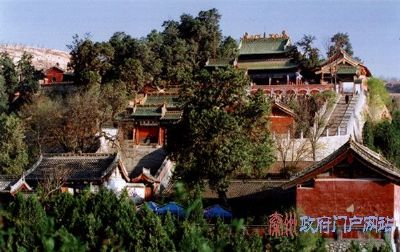
Tianshui Yuquanguan.
Plan your visit during the lively temple fair in early spring to witness local traditions and immerse yourself in the vibrant community spirit. Tianshui Yuquanguan is not just a destination; it is an invitation to explore the heart of Chinese heritage and to find a moment of tranquility amid the chaos of everyday life. Embrace the magic of this hidden gem, and let it inspire you on your travels through the enchanting landscapes of China.
